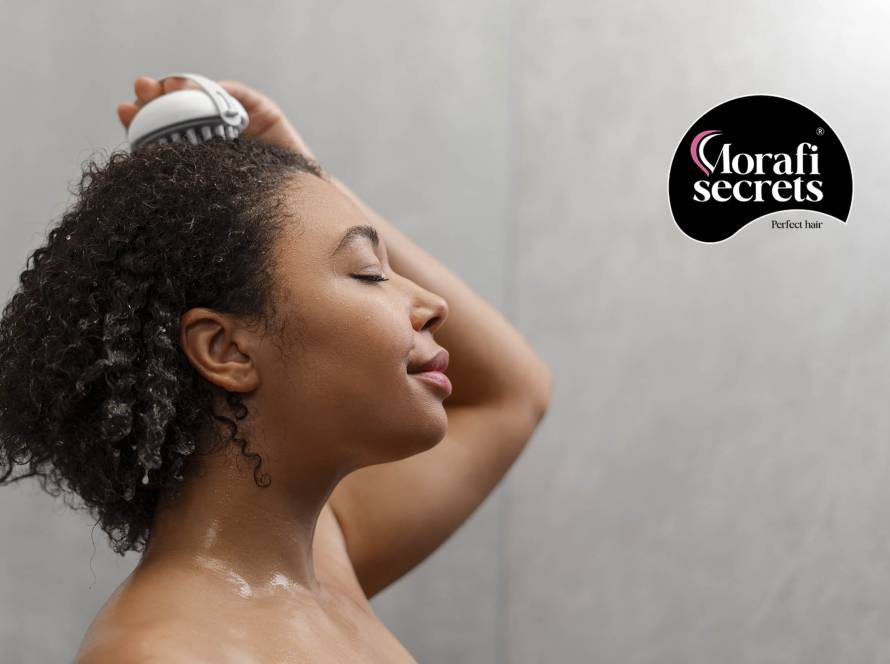The Ultimate Guide to Organic Hair Care: Embrace Nature for Healthier Hair
As awareness about harmful chemicals in beauty products grows, many people are turning to organic hair care products as a healthier alternative. Organic hair care focuses on using natural, plant-based ingredients free from synthetic chemicals, parabens, sulfates, and other harmful substances. This approach not only benefits your hair but also supports a healthier scalp, better growth, and reduced environmental impact. Here’s everything you need to know about organic hair care and how to make the most of these natural products.
1. Understanding Organic Hair Care
Organic hair care products are formulated with ingredients grown and processed without pesticides, artificial fertilizers, or synthetic chemicals. These ingredients, often certified by bodies like USDA Organic, EcoCert, or COSMOS, are chosen for their purity and effectiveness. Organic products use nature’s own resources, such as essential oils, botanical extracts, and natural oils, to nourish and rejuvenate hair without causing harm to you or the environment.
2. Common Organic Ingredients and Their Benefits
Organic products are often rich in essential vitamins, minerals, antioxidants, and other compounds that strengthen hair from the roots. Here’s a look at some powerful organic ingredients and their benefits:
- Aloe Vera: Soothes the scalp, hydrates hair, and promotes growth.
- Coconut Oil: Nourishes, strengthens, and adds shine to hair while preventing breakage.
- Argan Oil: Known as “liquid gold,” argan oil is packed with vitamin E and fatty acids to reduce frizz and boost shine.
- Tea Tree Oil: Antibacterial and antifungal, this oil helps treat dandruff and keeps the scalp healthy.
- Shea Butter: Moisturizes and protects hair, especially beneficial for dry or curly hair.
- Chamomile: Calms irritated scalp and brings out natural highlights, especially in lighter hair.
3. Benefits of Going Organic
Organic hair care products are not only better for your hair but also have wider benefits for your health and the environment. Here’s what you can expect:
Gentle on Hair and Scalp: Free from harsh chemicals, organic products nourish without stripping natural oils, making them ideal for sensitive or dry scalps.
Reduced Chemical Exposure: By avoiding parabens, sulfates, and synthetic fragrances, organic products minimize chemical exposure, reducing the risk of irritation and long-term harm.
Environmentally Friendly: Organic products often come in eco-friendly packaging and use ingredients that are sustainably sourced, making them a great choice for the environmentally conscious.
Effective Results: Rich in antioxidants, vitamins, and essential oils, organic hair products enhance hair health over time, leading to stronger, shinier, and more resilient strands.
4. Essential Organic Hair Care Products
If you’re just starting with organic hair care, here are some key products to include in your routine:
Organic Shampoo
An organic shampoo cleanses hair and scalp without stripping natural oils. Look for shampoos free from sulfates, which can be drying, and instead opt for those with gentle cleansers like coco-glucoside or decyl glucoside.
- Best for Oily Hair: Shampoos with tea tree oil, peppermint, or eucalyptus to balance excess oil.
- Best for Dry Hair: Moisturizing ingredients like aloe vera, shea butter, and coconut oil.
Organic Conditioner
Organic conditioners hydrate and protect hair with natural ingredients, restoring shine and softness without coating hair in silicones. Ingredients like argan oil, avocado, and chamomile are excellent for moisture and manageability.
Hair Mask
An organic hair mask deeply conditions, repairs damage, and restores moisture balance. Look for masks with ingredients like honey, coconut oil, and rosemary for added nourishment.
- DIY Tip: You can also make a hair mask at home using avocado, honey, and olive oil for a natural, cost-effective treatment.
Leave-In Conditioner or Serum
Organic leave-in conditioners or serums provide ongoing hydration and protection from environmental stressors. Jojoba oil, grapeseed oil, and argan oil are lightweight options that reduce frizz and add shine without weighing hair down.
5. How to Transition to Organic Hair Care
Switching from conventional to organic hair care requires patience. The initial weeks may involve a detox phase as your hair adjusts to the new routine, so don’t be discouraged if your hair feels different initially.
- Start Slowly: Begin by replacing one product at a time, such as switching to an organic shampoo first.
- Use Natural Oils for Extra Nourishment: Massage your scalp with organic oils like coconut or jojoba to stimulate blood flow and promote hair health.
- Avoid Heat Styling: Heat styling tools can damage hair, so try to minimize their use or apply a heat protectant.
- Be Consistent: Organic products work best with consistent use, so give your routine at least a few weeks before assessing results.
6. DIY Organic Hair Care Ideas
If you enjoy making your own products, organic hair care offers endless DIY possibilities. Here are a few easy recipes to try:
- Moisturizing Coconut Oil Hair Mask: Mix 2 tbsp coconut oil with 1 tbsp honey. Apply to damp hair, leave on for 30 minutes, and rinse.
- Apple Cider Vinegar Rinse: Mix 1 part apple cider vinegar with 3 parts water to balance scalp pH, reduce buildup, and add shine. Use after shampooing.
- Aloe Vera & Essential Oil Scalp Soother: Combine aloe vera gel with a few drops of tea tree or lavender oil to calm itchy, irritated scalps.
7. What to Look for on Labels
To ensure you’re getting a truly organic product, look for the following on product labels:
- Certification Seals: USDA Organic, EcoCert, and COSMOS are some trusted certifications that guarantee organic standards.
- Short Ingredient Lists: Organic products often have simpler, recognizable ingredients like plant oils and extracts, with fewer synthetic additives.
- Avoid “Greenwashing”: Terms like “natural” or “botanical” can be misleading if they aren’t backed by certification. Look for transparency in labeling to ensure quality.
Conclusion
Choosing organic hair care is an investment in your hair’s health and the planet. By focusing on natural ingredients and mindful practices, you can achieve beautiful, healthy hair without the risks associated with synthetic chemicals. Whether you’re using a simple aloe vera conditioner, a homemade coconut oil mask, or a professional organic shampoo, embracing nature’s ingredients is a powerful way to enhance your hair care routine.


